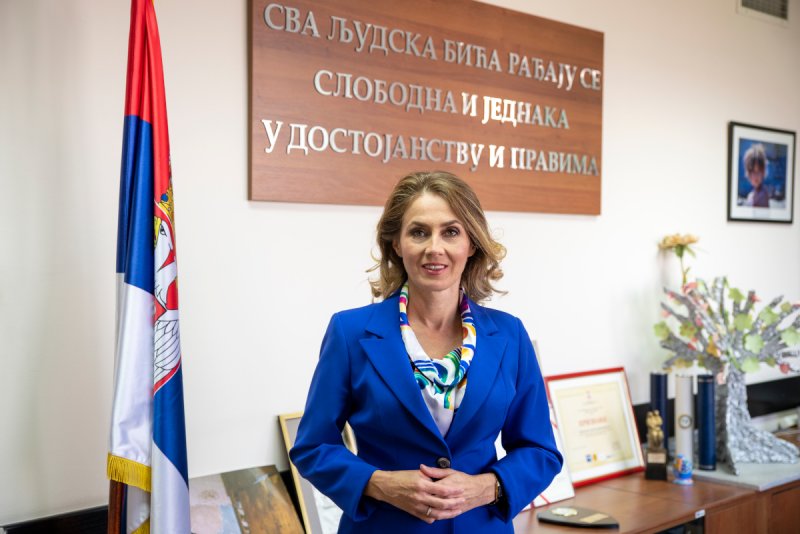The Commissioner for the Protection of Equality submitted to the National Assembly the fifteenth annual report on the protection of equality for 2024. During the year, more than 3,600 cases were dealt with, of which more than 700 were formed based on complaints. Also, 422 recommendations for measures to achieve equality, 16 initiatives to change regulations, 26 opinions on draft laws, and other regulations were sent to public authorities and other persons. One proposal was submitted to the Constitutional Court for the evaluation of constitutionality and legality, three criminal charges were filed, a strategic litigation was initiated and 12 warnings were issued to the public. Following the recommendations of the institution’s measures, 85% of the cases were acted upon, the Commissioner for the Protection of Equality, Brankica Janković, announced.
The most frequent grounds for discrimination in complaints were gender, followed by disability, state of health and age, namely, in proceedings before public authorities, in the field of health care, work and employment, education, when providing public services or using facilities and areas, in the field of the public sphere, public information and media. In the field of work and employment, multiple and cross-discrimination is mainly expressed – gender and marital status in connection with pregnancy and maternity, health condition and disability in the context of reasonable adjustment of the workplace, as well as discrimination based on membership in political, trade union and other organizations and religious and political beliefs.
The report emphasized that the year, and especially its last months, passed in an atmosphere of sadness, tension, uncertainty, and fear, division, and expressions of dissatisfaction through various types of protests. The targets of hate speech, harassment, and humiliating behavior were individuals, especially from public, political, and cultural life, civil society organizations and human rights activists, associations, as well as journalists. Unacceptable speech expressed by public office holders was a unique problem because they have a greater influence on public opinion and the creation of a hostile and offensive environment, said Janković.
It is worrying that in the first months of 2025, we are facing even greater societal tensions and divisions. The Commissioner reminds once again that labeling, intimidation, insulting, and any discrimination based on political, religious, national, and ethnic affiliation, or any other personal characteristic in health, social protection, education, or any other area of social life is unacceptable. Some of the recent cases include putting in a negative context and targeting Romanian, Croatian, Montenegrin, and other citizens, as well as challenging the rights of Serbs who were not born in Serbia or live outside of it… We must all be aware that this kind of atmosphere in the public space influences the creation of intolerance and that it is a short way from hate speech, verbal conflicts, and threats until they escalate into physical violence. The circumstances in which we live go beyond daily political disagreements and represent a deep social crisis of the system of values and trust.
There is obviously a need to create a social milieu in which normality, reasoned discussion, non-violent communication, respect for the dignity of interlocutors and different opinions, mutual respect, and personal responsibility are indisputable fundamental principles. Human rights, equality, and safety of all citizens must be ensured by the rule of law with the effective work of all institutions that must restore lost trust because, after all, this is what our citizens ask and expect from us, and why all institutions and bodies exist, concluded Janković.


